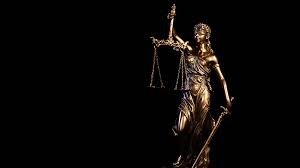Hon’ble Mr. Justice J. S. Verma, the former CJI, in his Dr. K.L. Dubey Lecture:
…Judiciary has intervened to question a ‘mysterious car’ racing down the Tughlaq Road in Delhi, allotment of a particular bungalow to a Judge, specific bungalows for the Judges, pool, monkeys capering in colonies, stray cattle on the streets, clearing public conveniences, levying congestion charges at peak hours at airports with heavy traffic, etc. under the threat of use of contempt power to enforce compliance of its orders. Misuse of the contempt power to force railway authorities to give reservation in a train is an extreme instance.
The Jagadambika Pal’s case of 1998, involving the U.P. Legislative Assembly, and the Jharkhand Assembly case of 2005, are two glaring examples of deviations from the clearly provided constitutional scheme of separation of powers. The interim orders of this Court, as is widely accepted, upset the delicate constitutional balance among the Judiciary, Legislature and the Executive, and was described Hon. Mr. J.S. Verma, the former CJI, as judicial aberrations, which he hoped that the Supreme Court will soon correct.
Recently, the Courts have apparently, if not clearly, strayed into the executive domain or in matters of policy. For instance, the orders passed by the High Court of Delhi in recent times dealt with subjects ranging from age and other criteria for nursery admissions, unauthorized schools, criteria for free seats in schools, supply of drinking water in schools, number of free beds in hospitals on public land, use and misuse of ambulances, requirements for establishing a world class burns ward in the hospital, the kind of air Delhities breathe, begging in public, the use of sub-ways, the nature of buses we board, the legality of constructions in Delhi, identifying the buildings to be demolished, the size of speed-breakers on Delhi roads, auto-rickshaw over-charging, growing frequency of road accidents and enhancing of road fines etc. In our opinion these were matters pertaining exclusively to the executive or legislative domain. If there is a law, Judges can certainly enforce it, but Judges cannot create a law and seek to enforce it. 27. For instance, the Delhi High Court directed that there can be no interview of children for admissions in nursery schools. There is no statute or statutory rule which prohibits such interviews. Hence the Delhi High Court has by a judicial order first created a law (which was wholly beyond its jurisdiction) and has then sought to enforce it. This is clearly illegal, for Judges cannot legislate vide Union of India v. Deoki Nandan Aggarwal, AIR 1992 SC 96 : (1991) 3 JT 608 : (1991) 2 SCALE 481 : (1992) 1 SCC 323 Supp : (1991) 3 SCR 873. In Vemareddy Kumaraswamy Reddy v. State of A.P., AIR 2006 SC 3517 : (2006) 2 JT 361 : (2006) 2 SCALE 314 : (2006) 2 SCC 670 : (2006) AIRSCW 894 : (2006) 2 Supreme 124, this Court observed The Judges should not proclaim that they are playing the role of law maker merely for an exhibition of judicial valour”. Similarly, the Court cannot direct the legislature to make a particular law vide Suresh Seth V. Commissioner, Indore Municipal Corporation and Others, AIR 2006 SC 767 : (2005) 9 JT 210 : (2005) 13 SCC 287 : (2005) AIRSCW 6380 : (2005) 7 Supreme 134 , Bal Ram Bali v. Union of India (UOI),AIR 2007 SC 3074 : (2007) 10 JT 509 : (2007) 10 SCALE 277 : (2007) 6 SCC 805 : (2007) AIRSCW 5822 : (2007) 6 Supreme 409, , but this settled principle is also often breached by Courts.
ARAVALI GOLF CLUB v. CHANDER HASS – 2007 SCeJ 004
In `The Nature of the Judicial Process’ Justice Cardozo remarked : “The Judge is not a Knight errant, roaming at will in pursuit of his own ideal of beauty and goodness”. Justice Frankfurter has pointed out that great judges have constantly admonished their brethren of the need for discipline in observing their limitations (see Frankfurter’s `Some Reflections on the Reading of Statutes’).




